FLAT 10% OFF ON YOUR FIRST ORDER. USE IVER10
Symbal Tablet (Duloxetine)
Price range: $25.00 through $81.00
Symbal Tablet, containing Duloxetine, is a widely prescribed SNRI (serotonin-norepinephrine reuptake inhibitor) used to treat depression, generalized anxiety disorder, diabetic nerve pain, fibromyalgia, and stress urinary incontinence. It works by balancing brain chemicals and blocking pain signals, offering both emotional and physical relief. Suitable for long-term management under medical supervision, Symbal can be taken with or without food, but consistency is key for best results. Initial side effects like dizziness or sleepiness may occur, so caution is advised while driving.
- Buy 2 and get Flat 15% Off. Use B2SAVE15
- Buy 3 and get Flat 20% Off. Use B3SAVE20
Symbal Tablet (Duloxetine) – Treatment for Depression, Neuropathic Pain & Anxiety
Symbal Tablet is a dual-action medication containing Duloxetine that effectively treats depression, anxiety disorders, diabetic nerve pain, fibromyalgia, neuropathic pain, and stress urinary incontinence. By increasing serotonin and noradrenaline levels in the brain, it helps restore mental balance and alleviate pain signals. This tablet can be taken with or without food, but maintaining a consistent daily schedule ensures optimal therapeutic levels. Patients may experience initial side effects like drowsiness or dizziness, so caution is advised when driving or operating machinery. Never discontinue Symbal Tablet abruptly as it may worsen symptoms – always consult your doctor for proper dosage adjustment.
Uses of Symbal Tablet:
- Treatment of depression and anxiety disorders
- Management of diabetic neuropathy (nerve pain)
- Fibromyalgia pain relief
- Neuropathic pain treatment
- Stress urinary incontinence control
- Overactive bladder symptom management
Benefits of Symbal Tablet:
- Dual-action relief – Addresses both psychological and physical symptoms
- Pain management – Effectively reduces neuropathic and fibromyalgia pain
- Bladder control – Improves stress urinary incontinence by enhancing nerve signals
- Mood stabilization – Helps restore emotional balance in depression/anxiety
Side Effects of Symbal Tablet:
- Nausea
- Headache
- Dry mouth
- Sleepiness
- Dizziness
- Blurred vision
- Decreased libido
- Abnormal dreams
Most side effects are temporary. Consult your doctor if persistent.
How to Use Symbal Tablet?
Take exactly as prescribed, swallowing whole with water. Can be taken with or without food, but at consistent times daily. Never crush or chew the tablet. Continue treatment as directed, even if symptoms improve.
How Symbal Tablet Works?
It is a serotonin-norepinephrine reuptake inhibitor (SNRI) that increases levels of these neurotransmitters in the brain. This dual action helps regulate mood while simultaneously blocking pain signals in the nervous system.
Safety Advice:
- Alcohol: Unsafe – increases CNS depression risk
- Pregnancy: Potentially unsafe – consult doctor
- Breastfeeding: Probably unsafe – limited data available
- Driving: Avoid – may impair alertness
- Kidney Disease: Use with caution in severe cases
- Liver Disease: Unsafe – avoid use
Dangerous Drug Interactions
Avoid with MAOIs (selegiline, moclobemide), other SNRIs, triptans, and tapentadol – risk of serotonin syndrome (agitation, fever, rapid heartbeat).
What If You Missed a Dose?
Take as soon as remembered unless near next dose time. Never double dose. If missed for several days, contact your doctor as dose adjustment may be needed.
FAQs:
Q1: How long until Symbal Tablet takes effect?
For depression/anxiety: 2-4 weeks. For pain: may take several weeks to 2 months. Continue as prescribed.
Q2: Can I stop if I feel better?
No – sudden discontinuation causes withdrawal symptoms. For depression, continue 6+ months after improvement. For chronic pain, long-term use may be needed.
Q3: Is Symbal Tablet addictive?
No, it’s not habit-forming, but should only be discontinued under medical supervision.
Q4: What happens if stopped abruptly?
Withdrawal symptoms may include dizziness, sleep disturbances, nausea, headaches, irritability, and “brain zaps.” Always taper gradually.
Q5: Does it interact with blood thinners like warfarin?
Yes, may increase bleeding risk. Monitor for bruising/petechiae if taking anticoagulants.
Q6: Is long-term use safe?
Yes, when monitored by your doctor. Regular evaluations ensure continued appropriate use.
Q7: Can Symbal Tablet cause weight changes?
Possible – some patients report weight loss initially, while others may gain weight. Monitor and maintain healthy habits.
Q8: What monitoring is required during treatment?
Regular checks for: mood/behavior changes, blood pressure, liver function (especially early in treatment), and treatment efficacy.
Q9: Can I take Symbal at night?
If causing drowsiness, evening doses may be preferable. However, if activating, take in morning. Follow your doctor’s recommendation.
Q10: What should I report to my doctor immediately?
Worsening depression/suicidal thoughts, unusual bleeding, severe headaches, vision changes, or signs of serotonin syndrome (fever, tremors, confusion).
| Strength | 20 mg |
|---|---|
| Pack Size | 30 Tablets, 60 Tablets, 90 Tablets |

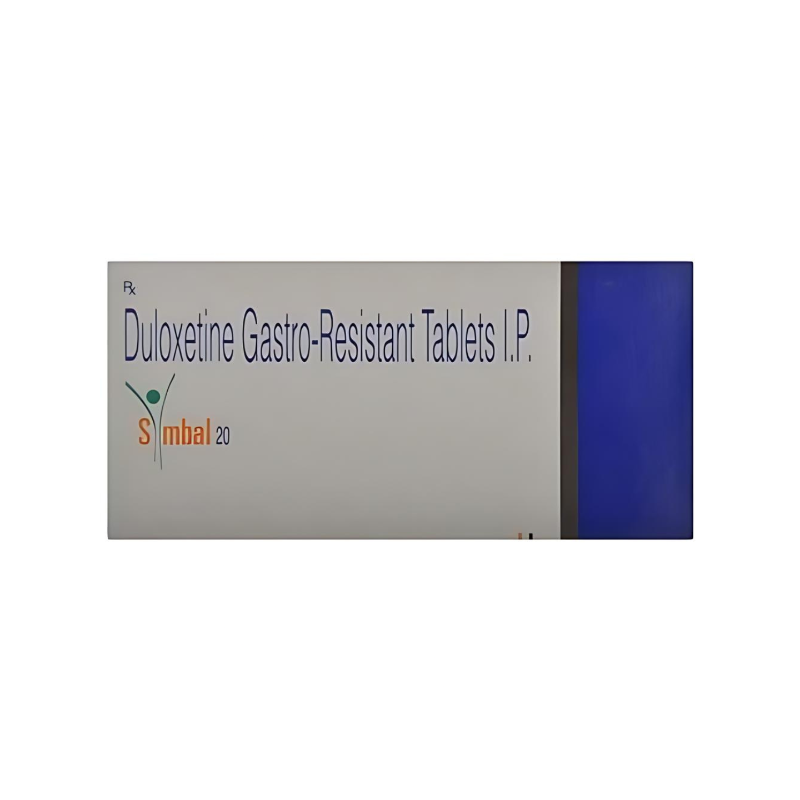


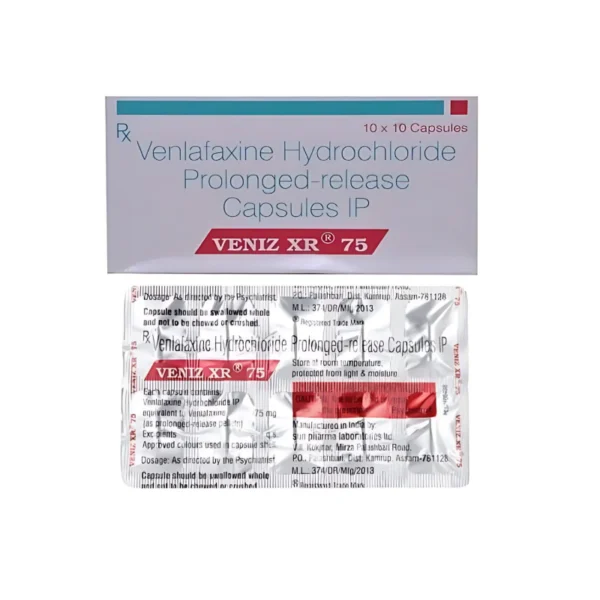
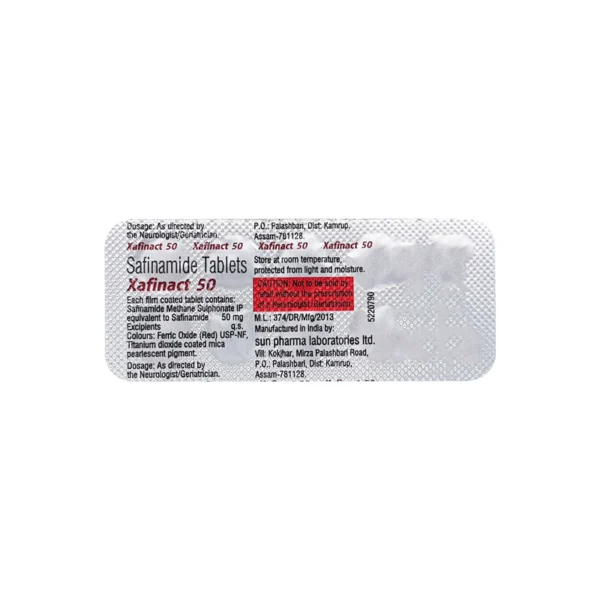

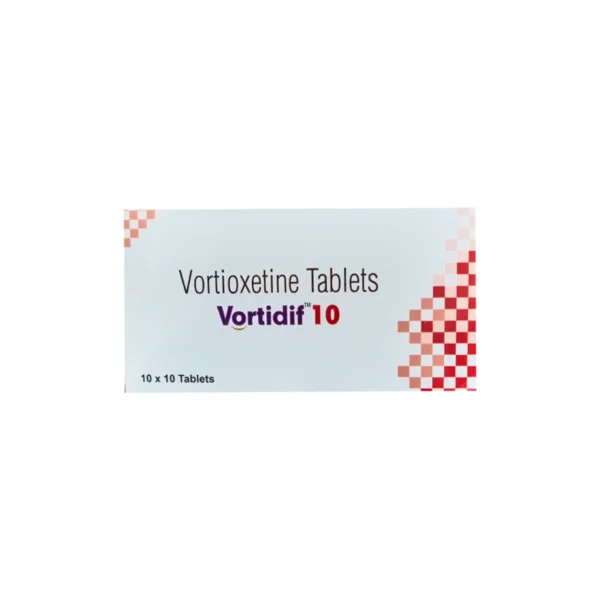

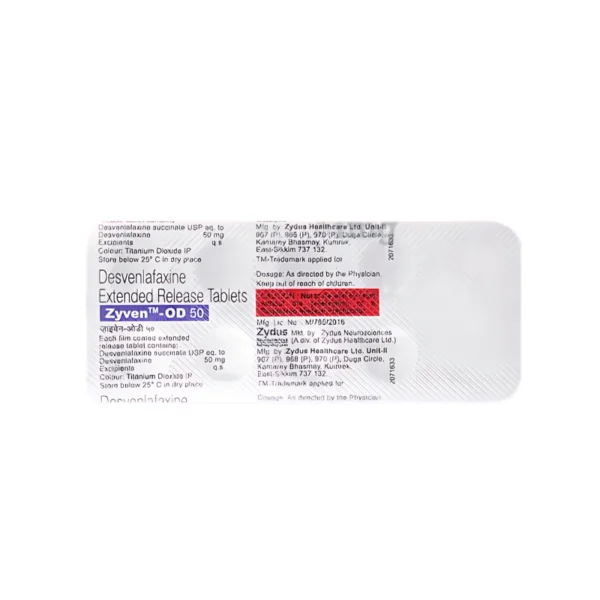
Reviews
There are no reviews yet.